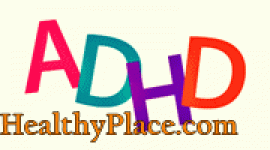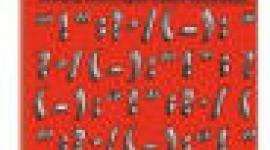Can Other Disorders Accompany ADHD?

A significant number of children with ADHD have additional disorders such as learning disabilities, Tourette's, oppositional defiant disorder, conduct disorder and depression.
ADHD and Comorbid Conditions
One of the difficulties in diagnosing ADHD is that it is often accompanied by other problems. For example, many children with ADHD also have a specific learning disability (LD), which means they have trouble mastering language or certain academic skills, typically reading and math. ADHD is not in itself a specific learning disability. But because it can interfere with concentration and attention, ADHD can make it doubly hard for a child with LD to do well in school.
A very small proportion of people with ADHD have a rare disorder called Tourette's syndrome. People with Tourette's have tics and other movements like eye blinks or facial twitches that they cannot control. Others may grimace, shrug, sniff, or bark out words. Fortunately, these behaviors can be controlled with medication. Researchers at NIMH and elsewhere are involved in evaluating the safety and effectiveness of treatment for people who have both Tourette's syndrome and ADHD.
More serious, nearly half of all children with ADHD--mostly boys--tend to have another condition, called oppositional defiant disorder. Like Mark, who punched playmates for jostling him, these children may overreact or lash out when they feel bad about themselves. They may be stubborn, have outbursts of temper, or act belligerent or defiant. Sometimes this progresses to more serious conduct disorders. Children with this combination of problems are at risk of getting in trouble at school, and even with the police. They may take unsafe risks and break laws--they may steal, set fires, destroy property, and drive recklessly. It's important that children with these conditions receive help before the behaviors lead to more serious problems.
 At some point, many children with ADHD--mostly younger children and boys--experience other emotional disorders. About one-fourth feel anxious. They feel tremendous worry, tension, or uneasiness, even when there's nothing to fear. Because the feelings are scarier, stronger, and more frequent than normal fears, they can affect the child's thinking and behavior. Others experience depression. Depression goes beyond ordinary sadness--people may feel so "down" that they feel hopeless and unable to deal with everyday tasks. Depression can disrupt sleep, appetite, and the ability to think.
At some point, many children with ADHD--mostly younger children and boys--experience other emotional disorders. About one-fourth feel anxious. They feel tremendous worry, tension, or uneasiness, even when there's nothing to fear. Because the feelings are scarier, stronger, and more frequent than normal fears, they can affect the child's thinking and behavior. Others experience depression. Depression goes beyond ordinary sadness--people may feel so "down" that they feel hopeless and unable to deal with everyday tasks. Depression can disrupt sleep, appetite, and the ability to think.
Because emotional disorders and attention disorders so often go hand in hand, every child who has ADHD should be checked for accompanying anxiety and depression. Anxiety and depression can be treated, and helping children handle such strong, painful feelings will help them cope with and overcome the effects of ADHD.
Of course, not all children with ADHD have an additional disorder. Nor do all people with learning disabilities, Tourette's syndrome, oppositional defiant disorder, conduct disorder, anxiety, or depression have ADHD. But when they do occur together, the combination of problems can seriously complicate a person's life. For this reason, it's important to watch for other disorders in children who have ADHD.
Disorders that Sometimes Accompany ADHD
Learning Disabilities.
Many children with ADHD—approximately 20 to 30 percent—also have a specific learning disability (LD).10 In preschool years, these disabilities include difficulty in understanding certain sounds or words and/or difficulty in expressing oneself in words. In school age children, reading or spelling disabilities, writing disorders, and arithmetic disorders may appear. A type of reading disorder, dyslexia, is quite widespread. Reading disabilities affect up to 8 percent of elementary school children.
Tourette Syndrome.
A very small proportion of people with ADHD have a neurological disorder called Tourette syndrome. People with Tourette syndrome have various nervous tics and repetitive mannerisms, such as eye blinks, facial twitches, or grimacing. Others may clear their throats frequently, snort, sniff, or bark out words. These behaviors can be controlled with medication. While very few children have this syndrome, many of the cases of Tourette syndrome have associated ADHD. In such cases, both disorders often require treatment that may include medications.
Oppositional Defiant Disorder.
As many as one-third to one-half of all children with ADHD—mostly boys—have another condition, known as oppositional defiant disorder (ODD). These children are often defiant, stubborn, non-compliant, have outbursts of temper, or become belligerent. They argue with adults and refuse to obey.
Conduct Disorder.
About 20 to 40 percent of ADHD children may eventually develop conduct disorder (CD), a more serious pattern of antisocial behavior. These children frequently lie or steal, fight with or bully others, and are at a real risk of getting into trouble at school or with the police. They violate the basic rights of other people, are aggressive toward people and/or animals, destroy property, break into people's homes, commit thefts, carry or use weapons, or engage in vandalism. These children or teens are at greater risk for substance use experimentation, and later dependence and abuse. They need immediate help.
Anxiety and Depression.
Some children with ADHD often have co-occurring anxiety or depression. If the anxiety or depression is recognized and treated, the child will be better able to handle the problems that accompany ADHD. Conversely, effective treatment of ADHD can have a positive impact on anxiety as the child is better able to master academic tasks.
Bipolar Disorder.
There are no accurate statistics on how many children with ADHD also have bipolar disorder. Differentiating between ADHD and bipolar disorder in childhood can be difficult. In its classic form, bipolar disorder is characterized by mood cycling between periods of intense highs and lows. But in children, bipolar disorder often seems to be a rather chronic mood dysregulation with a mixture of elation, depression, and irritability. Furthermore, there are some symptoms that can be present both in ADHD and bipolar disorder, such as a high level of energy and a reduced need for sleep. Of the symptoms differentiating children with ADHD from those with bipolar disorder, elated mood and grandiosity of the bipolar child are distinguishing characteristics.
next: Is Ritalin Related to Cocaine
~ adhd library articles
~ all add/adhd articles
APA Reference
Staff, H.
(2008, December 8). Can Other Disorders Accompany ADHD?, HealthyPlace. Retrieved
on 2024, June 20 from https://www.healthyplace.com/adhd/articles/other-disorders-that-accompany-adhd


